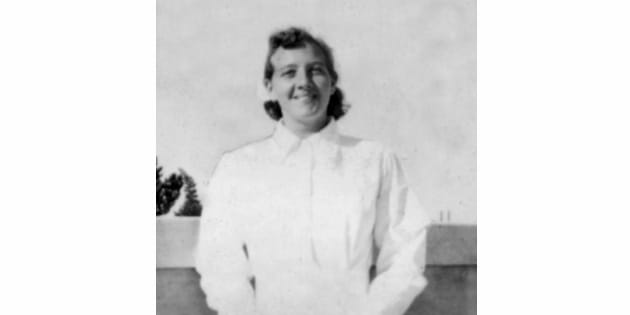The Roar of a Lion and Shots Heard Around the World

Mom at the Fever Hospital Johannesburg, 1936
The Roar of a Lion and Shots Heard Around the World
Last week, over breakfast, the family discussed a school assignment of mine to recount a hunting or fishing experience. We needed to bring along a related memento or photograph to share with the class. The trouble was our family did not hunt or fish. Everyone chipped in with suggestions. Finally, Mom said she had a memento from her jewelry box and with it a story. We pick it up from there…
The Roar of a Lion and Shots Heard Around the World
“What memento?” I asked.
“A goose feather.”
“Mom! They’re bringing in stuff from the Big Five.”
“Let me tell you,” she said, “Then you can judge.”
“Your story will be different,” my father said. “Listen!”
Mom poured a third cup of tea all round before she began…
“It was voluntary to work at the Fever Hospital in Johannesburg when I was a young nurse before the war. I signed up because it meant extra delicious meals: fresh fruit daily and pudding with cream at least twice a week. Who wouldn’t?
In those days, we had no defenses against disease, except a healthy diet. Night duty in the diphtheria ward was nerve-wracking. There was just enough light to see the children in their little beds. I tiptoed around. The only sounds were the creaking of the loose floorboards and the uneven breathing of each child. I went from bed to bed to check and log each child’s chart in the beam of my touch. If the child was pallid and breathing labored I feathered their tracheotomy.”
“What’s that?” I asked.
“A tracheotomy: that’s when a rubber tube is inserted into the trachea as an alternate breathing passage. You see diphtheria forms a tough false membrane in the air passages, blocking them. The patient can suffocate. The locker at each child’s bedside had everything on it I needed, but the most vital instrument was the goose quill. Constant feathering of the air passages was vital in removing this deadly tough membrane. I began to wonder if it was worth two servings of pudding and cream a week. The night seemed interminable.
Suddenly a lion roared. A board in the passage creaked. Another roar. A deep rasp. Another creak. I froze.”
“Ah, come on Mom, you’re fooling us. You’re talking about the middle of Johannesburg!” said Brian.
“I haven’t finished,” she said. “My own breathing stopped. Time stood still. Suddenly I realized. Yes! It was the roar of the lion, pacing in his cage in the Zoo in Forest Town! The sound carried in the still of the night air. I never got used to it.”
“Zoos!” exclaimed David. “Imagine pacing up and down a cage all night instead of prowling in the elephant grass. I’d be roaring too. That’s who I feel sorry for.”
“We’re all jolly lucky,” said my father, “We don’t have to worry about diphtheria any more with DT vaccine developed since the war: eradicated, in just a few years! Just like magic. Now, those are the kind of shots that should be celebrated around the world.”
“No question, the feather is a pretty lame memento and I don’t think anyone’s going to be impressed, myself, with those kind of shots,” said Brian. We’ve got right off the point, if you ask me. It’s about risking your life in the bush. Dad, you’ve always got this or that medical emergency interrupting our lives, how about calling this a family emergency and going on a hunting trip this weekend so Diana will have something to talk about?” he suggested hopefully.
Mom seemed not to have heard and went on, “One last thing! Much better to celebrate life rather than death. Take a bottle of Mazoe Orange and make a toast: L’chei-im, le’chayim! To Life!” she said, as she lifted her teacup and drained it and Dad lifted his and tipped it to her.
